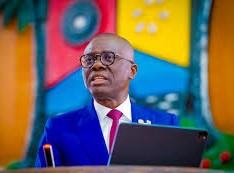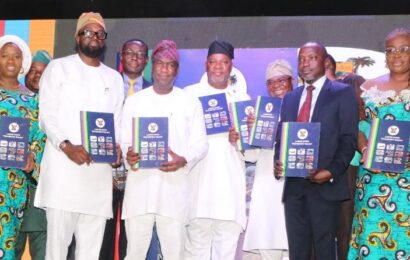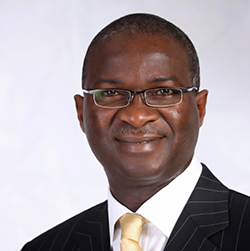
The Lagos State Government has reiterated its commitment to intermodal transportation system as part of measures to boost socio-economic activities and minimise traffic-related losses in the State.
Speaking at the closing ceremony of the 5th Lagos Real Estate Marketplace Conference and Exhibitions, the Lagos State Commissioner for Transportation, Mr. Oluwaseun Osiyemi, highlighted the critical role of transportation in driving economic growth.
He lamented the current situation where 90% of transportation in Lagos relies on road networks, with water and rail transportation accounting for just 2% combined.
Osiyemi described this imbalance as unacceptable, noting that Lagos accounts for 30% of Nigeria’s GDP. “Every sector must contribute significantly to the well-being of the people,” he said, stressing the need to alleviate the trillions of naira lost annually due to traffic congestion.
He further emphasised that the state’s future lies in building an eco-friendly Lagos with fewer cars on the roads, in line with Governor Babajide Sanwo-Olu’s T.H.E.M.E.S Agenda.
The Conference also addressed the challenges and prospects of affordable housing and sustainable design. During one of the panel sessions held on Day Two of the Conference, Architect Emmanuel Abikoye, President of the Billionaire Realtors Group and moderator of the session, called for stronger collaboration between the government and realtors.
He advocated for modular construction to reduce costs and meet the housing demands of the ever-growing population in Lagos.
One of the Panelists, Architect Emmanuel Falude, Director of the Green Building Council of Nigeria, identified the availability of materials as a major factor affecting affordable housing.
He urged stakeholders to gain deeper market insights and adopt sustainable designs. Falude also assured developers of the council’s free support in promoting a peaceful and sustainable society.
Collins Clifford, another panelist, suggested that government subsidies on land costs and improved access roads could open up the hinterlands, decongest urban areas, and make housing more affordable. He emphasised the potential of using local materials to construct low-income housing for the middle class.
Engr. Stella Okengwu, CEO of Winhomes, highlighted the importance of building homes tailored to people’s budgets and needs, especially given the current economic realities.
She proposed innovative solutions, such as using cost-saving materials like recycled rubber and ceramics, which could cut housing costs by up to 20%. Okengwu also urged stakeholders to explore solar energy options and negotiate affordable repayment plans for clients to address Nigeria’s energy crisis.
Themed: “Reimagining Lagos Landscape: Ensuring Sustainable Real Estate Development Practices,” the Conference served as a platform for industry leaders, policymakers, and stakeholders to explore sustainable solutions for Lagos’ housing and transportation challenges.






